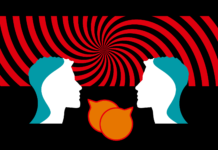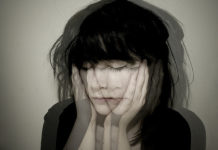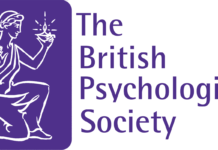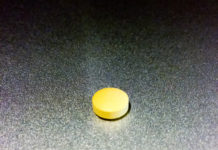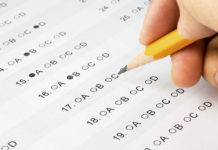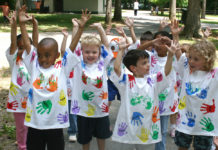Early Attention to Life Circumstances and Relationships Improves Outcomes for Psychosis
Coordinated care with employment support and family therapy leads to superior outcomes for those diagnosed with psychotic disorders.
Exercise Effective for Early Psychosis, Studies Show
A new study out of the University of Manchester found that personalized exercise programs reduced the symptoms for young people suffering from their first episode of psychosis. Researchers also conducted an accompanying qualitative analysis and found that the participants experienced improved mental health, confidence, and a sense of achievement and felt that autonomy and social support were critical to their success.
Anti-Stigma Campaigns Enable Inequality, Sociologists Argue
Scholars contend that stigma functions as a mechanism of power in analysis of UK Heads Together mental health campaign.
Different Forms of Childhood Adversity Related to Specific Psychosis Symptoms
In this month’s issue of Psychological Medicine, researchers from King’s College London found evidence for associations between different types of childhood adversity and specific symptoms associated with psychosis. As current categorical approaches to psychosis and schizophrenia diagnoses come under increasing scrutiny, this study adds support to sociological and psychological theories and treatments.
Do Family Interventions for Psychosis Translate in China?
Researchers explore how family interventions for psychosis might be adapted to China’s emerging integrated mental health care landscape.
New Review Suggests Higher Recovery and Remission Rates for Psychosis
Meta-analysis gives updated recovery and remission rates for persons identified as having a first-episode psychosis and those diagnosed with schizophrenia.
Mediterranean Diet Improves Mental Health, Study Finds
A diet rich in fruits, vegetables, whole grains, nuts, and fish has repeatedly been found to improve mental health.
The Psychological Effects of the Zero-Tolerance Immigration Policy
Journal releases a compilation of articles detailing how zero-tolerance policy may impact mental health.
Family Oriented, Home-Based Treatment Best for Youth with Symptoms of Psychosis
A pathbreaking new study out of Finland suggests that early intervention programs for youth experiencing psychotic-like symptoms may see the greatest improvement when treatment works within the home rather than in a hospital setting. The research, to be published in next month’s issue of Psychiatry Research, found greater improvement in functioning, depression, and hopelessness among teens in a new need-adapted Family and Community oriented Integrative Treatment Model (FCTM) program.
Food Insecurity Linked to Mental Health Globally
Global analysis of 149 countries finds food insecurity is associated with poorer mental health.
Study Highlights Importance of Social Interactions in Psychosis Recovery
Study finds frequency of social interactions predicts long-term remission in first-episode psychosis.
Study Examines US Mortality Rates for First-Episode Psychosis
At 12 months, rates of mortality for those diagnosed with first-episode psychosis are 24 times higher than the general population.
REFOCUS Psychosis Recovery Intervention Ready for Trials
A new pro-recovery manualized intervention – called the REFOCUS intervention – has been developed and will now be evaluated in a multisite randomized control trials. The strengths-based intervention, which focuses on promoting relationships, is outlined in the latest issue of the British Journal of Psychiatry.
WSJ Hosts Debate on Depression Screening
The U.S. Preventive Services Task Force (USPSTF) recently issued a controversial recommendation that all adolescent and adult patients undergo depression screening in primary care. The...
No Proven Treatments of Any Kind for Psychosis or Schizophrenia in Children or Youth
There are no proven treatments of any kind for children or adolescents experiencing psychosis or schizophrenia, according to a meta-analysis of randomized comparison trials published in PLOS One.
Critical Influence of Nutrition on Psychosocial Wellbeing in Childhood
The bidirectional relationship between diet and nutrition and social, emotional, and educational factors among European youth.
Psychologists Push For New Approaches to Psychosis: Part 1
Psychologists and people with experience of psychotic symptoms publish a report on new ways of understanding psychosis.
In Chronic Patients, Antipsychotics Have Limited Efficacy in Reducing Symptoms
A large review and meta-analysis of 167 studies across 60 years dissects placebo-controlled randomized controlled trials of antipsychotic drugs.
Minority Discrimination Linked to Psychosis
A study published in this month’s issue of the Social Psychiatry and Psychiatric Epidemiology found that perceived discrimination related to minority status may precede...
Clinton Releases Mental Health Plan
Today, Hillary Clinton’s campaign released their plan for addressing mental health care in the United States. The plan calls for a full integration of...
Study Challenges Assumption that Schizophrenia Impairs Cognitive Ability
Secondary factors may impair performance on cognitive tasks, making it difficult for individuals diagnosed with schizophrenia to perform to the best of their ability.
Adderall Use Associated with Increased Risk of Psychosis
Twice as many teenagers with ADHD experienced severe psychosis when taking Adderall, as compared to Ritalin, according to a new study.
New York Times Issues Correction on RAISE Study Report
Last Tuesday, The New York Times and several other outlets (including Mad In America) reported on the highly-touted results of a study on psychosocial treatment for patients diagnosed with schizophrenia. Now, claims made about the study, which the ‘Times called “the most rigorous trial to date,” are coming under increased scrutiny.
Problem Behaviors are Medicalized in White Children and Criminalized in Black Children
Race often determines whether school punishment or therapy and drugs will be used to address children’s problem behaviors.
“Is It Her Hormones?” A Case of Psychiatry Missing the Mark
The case of “Beth” depicts, almost innocently, the trials and tribulations of a well-adjusted, talented 15-year-old who developed depression, paranoia, panic attacks, and self-injurious and homicidal behavior, and “bipolar disorder” after being prescribed antidepressants, and then antipsychotics. After Beth decided - on her own - to discontinue psychotropic medications in favor of hormone therapy, she remained free of psychiatric symptoms.

